We’ve all been required to become more digitally responsive, and libraries have grasped this need by finding new ways to reach their communities. They have had an important role during this time of uncertainty – creating a sense of assurance and continuity and combatting misinformation.
| Libraries and information services play an important role in connecting communities together – people come to libraries to be with others. And achieving this has been a challenge for libraries during lockdowns as it requires digital connectivity. But not all customers are online, and many come to the library to gain this digital access, suggesting a place for the sector to support the campaigns seeking to gain universal digital access across Aotearoa New Zealand. |
In this article we look at some of the responses and impacts of some public, health and special libraries during the most recent COVID lockdowns.
| TO VAC PASS OR NOT VAC PASS There was a flurry in early December 2021 as many public libraries helped people obtain their vaccination passes to gain access to restaurants, facilities, and community services. There was an overwhelming demand for this support from mostly older customers, with most libraries helping and some even laminating passes. We don’t know how many libraries are requiring vaccination passes for entry into their services. However, a poll of libraries attending a LIANZA webinar in December, showed that of the 85 libraries recorded: 41% were requiring a pass, 45% were not and 14% were unsure. A number were still considering their situation and some, such as health and school libraries, did not require them because of their client status. As the vaccination rate passed 93% nationally, and the threat of the fast-moving Omicron variant, sentiment from communities has swayed many libraries to require vaccination passes. |
In some libraries vaccination pass requirements have put library staff in a difficult position. Protestors outside the Takaka Library in the Tasman District Council offices wrote slogans on the footpath and spat on the windows. Staff retreated into a back room for safety after protesters entered the building. A similar situation occurred in Featherston, in the Wairarapa, on 20 January.
In some libraries vaccination pass requirements have put library staff in a difficult position. Protestors outside the Takaka Library in the Tasman District Council offices wrote slogans on the footpath and spat on the windows. Staff retreated into a back room for safety after protesters entered the building. A similar situation occurred in Featherston, in the Wairarapa, on 20 January.
THE PRACTICE OF BOOK QUARANTINING
During the first lockdown in 2020 most libraries were quarantining returned books as it was unclear if COVID was spread by contact with surfaces such as books. However, come the second lockdown in August 2021 reports from overseas were that very few, if any, libraries were now quarantining returned books. The focus had moved on to keeping people safe – hand washing, mask wearing, social distancing.
Libraries Connected in the United Kingdom in consultation with Public Health England, and in line with guidance published by the government, issued Public Library Service operational guidance in mid-July, 2021. This guidance included the information that there is no longer any requirement to quarantine returned books and library resources, or to wipe down their surfaces.
New Zealand libraries soon followed suit.
AUCKLAND LIBRARIES EXPERIENCE
Auckland Libraries have 56 community libraries and recently completed a restructure within the Customer and Community Services directorate to combine libraries, arts and culture services, community centres and events (council, community and partner-run). They were combined into one very large Connected Communities department and 2021 lockdown had its challenges.
“2020 definitely prepared us for the 2021 experience. We didn’t have the same sense of not knowing what we were up for. However, we didn’t expect that on August 17 we wouldn’t be coming back into libraries and other community facilities for three months – it wasn’t the short and sharp lockdown we thought it might be, “says Catherine Leonard, Head of Library and Learning Services at Auckland Council.
“What was different this time was that while we had the framework from the government for the whole country, Auckland was a bit different. For example, when the additional steps were introduced into Level 3, Council had to determine and agree what they meant for all our services. For libraries, could we do click and collect, what other risk assessments and controls were required, what did the physical distancing really mean in terms of space for staff and then for customers, how could we offer an equitable service across a very large region when we had staffing pressure points and very different customer needs? Comparisons with what other services in other parts of the county were doing, weren’t always useful.”
Catherine says they were very conscious of communicating services clearly for customers while still working the processes out. The council policy on vaccination passes was another deliberation.
“There wasn’t a detailed rule book for all situations or all categories of service. Council had to consult and then decide what was best for staff and for customers. The consistent message has been that the health and safety of our staff and of our communities was the priority. Thinking about our communications was of upmost importance, both for staff and for customers. We learnt that sharing as much as we knew with staff, even if we didn’t have all the answers, was reassuring for everyone. For customers, we decided on some principles: keeping it simple, being sure that what we offered was clear and could be consistently delivered. Being a new department, we had to think about how this applied across all our facilities, services, events, and programmes. We had a lot of people to communicate with but also a lot of support from the council communications team.”
“We know our customers missed access to physical books during the lockdown and we were all very happy when we were able to offer a click and collect service. But that access alone doesn’t provide the community and social connection – the regular visit, the conversations, participation in events and programmes, and the other in-person experiences people enjoy in our libraries. Our staff and our customers became increasingly aware of what we weren’t able to do and missed it.”
A broad range of digital services was consistently available. We knew to expect an immediate and ongoing increase in demand for eBooks and digital resources, based on the 2020 experience. In 2020 Auckland Council Libraries was one of only two library systems in the southern hemisphere to lend over two million eBooks. In 2021 over 3.5 million eBooks were borrowed.
“We hit the three millionth check-out on our Overdrive platform during the 2021 lockdown – over one million e-checkouts during the lockdown period alone. We were watching demand all the time and saw early in the 2021 lockdown that children’s material was particularly popular,” said Catherine. “Check-outs increased by over 100%. We’re assuming parents were keen to use our resources to help children stay entertained and engaged with reading. Lockdown also included a school holiday period this time round so sources of entertainment were probably very important for parents. We also saw that weekends were the busiest time for check outs – both these trends were different from the lockdown in 2020.”
| As well as eBook and audiobook platforms, Auckland Council Libraries provides LinkedIn Learning, Press Reader, Ancestry.com, many databases and e-journals, Beamafilm, its own podcast service and YouTube channel. “We kept reminding Aucklanders about the range of online resources via our communications channels. With an easy online membership process, Aucklanders can join and access resources immediately.” Catherine says that as the lockdown went on, they became aware of the increasing need for access to specialised and research materials by students, academics, authors, and researchers. The library set up a direct phone line to the research team to connect customers with staff expertise and to provide access to physical material when staff could go into libraries. Initially, this meant phone or online sessions, then providing materials for collection at the door. Children and Youth Services librarians also provided virtual storytimes. “This was something staff had a lot or practice in doing in the 2020 lockdowns. They typically used the community library’s Facebook channel for posting these events as well as communicating local news and updates to their local communities.” |
Thinking about what we are heading into with Omicron, Catherine feels we need to be adaptive and bring a mindset to our work that continually challenges what and how we “dial-up or dial-down” services depending on circumstances.
“We need to adjust quickly and think about a sophisticated combination of offerings that’s not solely dependent on being either open or closed. Our customers are reflecting expectations they see based on a whole variety of different sorts of services and adjustments from other businesses. We still have some work to do here on how we make the most of the great talent and examples of locally created content (56 community libraries means 56 Facebook pages) on our regional platforms, and vice versa. We also need to think about great online experiences alongside making it attractive to customers to come back into the library when the doors are open, and programmes and events are on offer. Of course, with each COVID variant, there’s something new and unpredictable to think about so we’re planning now for what significant staff shortages will mean for our service offer.”
WHANGAREI DISTRICT LIBRARIES
Glenn Davidson, Outreach Services Team Leader at Whangārei District Libraries, says “Vaccine passes are a difficult part of this recent COVID period. We’ve trained our whole working lives to be welcoming to everybody in libraries and it’s hard to get used to not doing that.”
To be as inclusive as they could, Whangarei District Libraries kept their branch and mobile libraries vaccine pass free and set up a click and collect service for people who could not come into the Central Library. Because the Central Library is a multi-purpose building vaccine passes are required.
“The 2020 COVID period has almost blurred into 2021. We were more prepared the second time around though it still wasn’t easy. But the transitions were.”
When COVID cases started appearing in the Northland area the library went mad. “So many people were coming in the few days before lockdown. I’ve never seen it so busy.”
“We did have an increase in eResource use and continued our Preschool Funtimes online.
We heavily promoted the availability of our 24/7 library service and digital resources. Even my 70-year-old dad learned how to download an eBook.”
While there were many people engaging with the Preschool Funtimes in 2020, the audience dropped off in 2021. “There was a lot of chopping and changing of in-person versus virtual events, and we set up scheduled Facebook live events. We had our main followers but not in the numbers of 2020.”
ROTORUA LIBRARY TE AKA MAURI – INNOVATION AND EXPANSION
2021 brought positivity to the team at Te Aka Mauri, having emerged from the COVID lockdowns of 2020. New services were launched including Whakapuāwai, an employment literacy programme delivered by the new Community Learning Co-ordinator role funded by the NZLPP. People visited Te Aka Mauri for support and staff visited marae and community centres assisting with CVs and cover letters. Programmes for children were back in full force and community groups made use of the many spaces on offer.
“COVID returned with another curve ball called Delta and once again we closed our doors and returned to working from home. On reopening there was still uncertainty about when we could host events, so we put on our thinking caps to come up with alternative ways of delivering special programmes. Poems that would normally scroll across our screens instead became a free eBook reaching an even wider audience. The launch of our 6th edition of local history stories became a pre-recorded video with contributors reading their stories to an audience three times the capacity of our event space,” says Joanne Dillon Marketing, Communications and Events Lead.
He Kete Rau Mahara - Local Heritage Week went ahead in November 2021 as a virtual programme which was highly successful. These and story times made use of the YouTube platform and Facebook to engage with the local community and wider New Zealand. Popular YouTube videos during the week have been: Waiata mai, Living Book with Reverend. Tom Poata, Daughters of the Land Nga Uri Wahine a Hinehuone, and local stories such as Hoha te Taniwha.
“When we couldn’t hold school holiday programmes, the Youth and Early Learning Team developed a series of holiday programmes in a bag for families to take home. These Busy Bags contained instructions and stationery needed to enjoy a range of crafts. Children made friendship bracelets, puppets and brightly coloured flextangles. From this idea came the Bigger Busy Bag which were put together to be delivered to children living in emergency housing, thanks to funding from Friends of the Library. They included more fun craft projects but also glue sticks, coloured pencils, and children’s scissors – items that weren’t always at hand in motel rooms. Most recently we have assembled Big Busy Boxes which are being distributed by health outreach services to children who are having to isolate due to contact with COVID. We just had a request for 76 Big Busy Boxes for children isolating for 10 days in one motel complex. Each activity in the Big Busy Box is not only fun but also creates opportunities for language growth and learning.”
PARLIAMENTARY LIBRARY SERVICES TE RATONGA WHARE PĀREMATA
Parliamentary Service Te Ratonga Whare Pāremata were involved with accessing information and research from overseas to tackle misinformation and keep members of Parliament (MPs) up to date with COVID research. It became an important part of their library service work and included the provision of research on COVID timelines, legal changes and definitions, support for the cross-party Epidemic Response Committee, and providing details of COVID resources available for MPs and their electorate and community office staff.
The Manager of Collections and Information, Brent McIntyre, said the number of COVID related questions coming to the library staff proved how critical the role is.
“Boy, did 2020 change how research and education services are provided at Parliament.”
“We found that once lockdown occurred there was a growing need for media reports on the pandemic and we had to support this need.”
| | “We had to track the spread and find out what other countries were doing to inform MPs and address the misinformation that was happening. Just like the MPs, the public had lots of questions and they came to Parliament to get answers.” Luck played a big part for the team before lockdown as laptops were provided pre-pandemic. Most staff had internet connections at home, though some had to be supported with monitors and other devices. Working alongside the library, the Parliamentary Service Education team also pivoted quickly and set up a series of webinars on how Parliament and submission processes would work remotely. Teaching resources on democracy during a pandemic got great feedback from students and teachers. “None of these things would have been done had the pandemic not hit us. It propelled us into an innovative space that I’m ultimately glad of,” says the Education Lead Ben Logan-Milne. |
Manaakitanga of staff was crucial across both teams. People were juggling different commitments and supporting staff mental health was important. Teams found ways to connect and add variety to the workday through activities such as daily staff quizzes and check-ins.
The pandemic brought with it many challenges, which took new ways of working and thinking to deal with. Though both teams had to make some big changes to the way they functioned, ultimately, increasing access to services online was a positive step forward.
AT THE COALFACE: THE ROLE OF COUNTIES MANUKAU HEALTH LIBRARY
During the first days of the pandemic, Counties Manukau Health Library decided to close their physical library early and offer a purely virtual library service.
“In many ways we had anticipated this shift long before it become a matter of necessity. Our large collections of journals and clinical texts were digital. Our systems for access and management of our collections are cloud based. We have had in place for several years digital communication channels for both the request and delivery of services such as literature searching, evidence synthesis and interloan. We have long ago enabled remote access to collections, resources, and services to all our staff and to our partners in primary and community care,” says Peter Murgatroyd, Library and Knowledge Services Manager and Convenor of the LIANZA Health SIG.
“The demand for our services during the COVID-19 pandemic was higher than ever. Responding with urgency to literature search requests from across the organisation cast a spotlight on the expertise and dedication of our library team.”
During the pandemic the team provided staff with twice-weekly COVID-19 evidence updates that included the latest research and clinical guidance from a broad range of sources. Members of the library team were embedded in projects and initiatives to roll out new service responses and to create frameworks for monitoring and evaluating the impact of new initiatives.
The application of technology to work both remotely and collaborate across multiple teams and initiatives proved to be highly effective and set the way of the future.
“I believe that in times such as these we must throw off the shackles of the past and embrace the opportunities to reimagine the value we can add and the contribution we can make to our organisations and communities. In the face of massive disruption and uncertainty the role of librarians as highly skilled and trusted knowledge navigators has never been more relevant or valued.”
“In the ensuing two years, as we entered and exited various alert levels, light settings and lockdowns, the demands on our library service to provide research and support for our response to the COVID pandemic has continued unabated. We continue to curate and disseminate the latest evidence and respond to urgent requests for literature to guide our response and planning. In such a dynamic and fast changing information landscape, our library team remain an essential service.”
INFORMATION SERVICES - DEPARTMENT OF CORRECTIONS ARA POUTAMA AOTEAROA
A new service was provided to Department of Corrections staff during the COVID 19 lockdown between March and May 2020. An incident team was implemented to coordinate the Department’s response to the pandemic. It needed to protect those on custodial and community sentences and their whanau as well as 10,000 staff nationwide.
The team needed a regular current awareness service to supply vital information about hygiene, PPE, managing visits and other critical information to assist with managing a novel disease outbreak. Information was sourced from the World Prison Brief, an online database providing free access to information on prison systems around the world. The format designed aimed to be read easily with links to information from each jurisdiction. Information was used by the policy team who were tasked with providing advice to the incident team.
Jennifer Klarwill, Principal Adviser Information Services at the Department of Corrections says that this work was valuable to the policy team who were the principal advisors to the incident team during the early days of NZ’s epidemic response when information demand outstripped supply. “They used this information as background research for informing their key decision-makers. It saved them a lot of time by not having to do the literature searches,” she says.
VIRTUAL STORYTIMES
Many public libraries over the country engaged with their communities by offering virtual storytime sessions. Virtual story times were made possible by a unique agreement between publishers, authors and libraries coordinated by the Coalition for Books. LIANZA approached the Publishers Association of NZ (PANZ) and Copyright Licensing NZ (CLNZ) the week prior to libraries being closed for Level 4 in 2020. The aim was to enable New Zealand public libraries to provide virtual story times during the pandemic, while ensuring New Zealand’s copyright laws were not breached. This was achieved two days before the lockdown.
There were over 400 public library virtual storytime’s registered in 2020 and 100’s registered for sessions in 2021.
Waimakariri Libraries serves communities in Rangiora, Kaiapoi and Oxford across the rural plains of North Canterbury. Paula Eskett, District Libraries Manager says the libraries started recording virtual storytimes almost immediately during the first lockdown of 2020. Virtual Babytimes Preschool Storytimes and Toddler Times sessions were very popular with 11,900 engagements for the preschool first session alone.
Another popular resource was the Samoan language lessons with Beth and Silika Tavui and their dog Joey, who got 1,300 views on Facebook.
Virtual Storytimes have continued over 2021 for Waimakariri Libraries with strong connection from audiences both online and in-person. Copyright exemptions were provided by some of the smaller publishers or by using material outside of copyright requirements. These virtual and in-person events have a well-known and experienced team able to provide the in-library experience from either home or at the library. The success of their 2020 online events was carried through with a children’s craft group created (in person and sometimes online) and a new Lego group in Rangiora.
GOING VIRTUAL: PILOTING A VIRTUAL READING ROOM AT THE TURNBULL LIBRARY TE PUNA MATARANGA O AOTEAROA
In June 2020, the Alexander Turnbull Library, Te Puna Mātauranga o Aotearoa National Library of New Zealand, began a pilot project to offer secure remote access to selected digital archives via a virtual reading room, working in collaboration with Auckland City Libraries. The intention was to provide greater access to collections to people who could not go to the library in Wellington where most collection material was available – the need for this was made starker by the restrictions imposed by the pandemic lockdowns.
A virtual reading room is a way to provide digital access to digital collection items in a controlled environment. Researchers had to request access and agree to terms and conditions before being given access to the items they had requested from the library.
The main lessons Alexander Turnbull Library learned from the pilot says Valerie Love, Senior Digital Archivist at Alexander Turnbull Library, was that users during the pilot project have overwhelmingly appreciated having a virtual option for research, and that it helped to address equity of access issues for people not able to physically get to the library. The library is currently working to implement a sustainable, longer-term service.
ARCHIVING COVID: ONE PUBLIC LIBRARY’S EFFORT TO DOCUMENT THEIR COMMUNITY’S PANDEMIC EXPERIENCE
In early March 2020, as the COVID-19 situation worsened and the prospect of lockdown appeared imminent, the Upper Hutt Libraries Heritage Team began collecting content for a pandemic-related local history archive. Despite the trying circumstances, they felt it important to create an archive of these events as they were going on to ensure what was happening locally was documented as well as possible. As one of the team members, Reid Perkins, commented during his presentation at LIANZA 2021: “Public library collections need to capture their own community’s experience of major national and world events, otherwise the local perspective is lost.”
The team began by collecting photos capturing the disruptions to everyday life caused by the pandemic, such as closure signs outside schools, queuing at supermarkets, empty motorways, etc. They also added pictures documenting acts of community solidarity and connection that arose during lockdown, such as chalked messages, street art and teddy bear displays (determining just how many of the latter to collect posing something of a quandry).
In addition to the photo archive, over a dozen oral history interviews were conducted via Zoom with Upper Hutt residents talking about their lockdown experiences while they were still undergoing it. Along with the photographs these interviews were made publicly available through the Library’s Recollect local history website. The team was aware of potential objections to their approach, such as the relatively poor quality of Zoom interviews and insufficient planning time creating ethical risks. On balance, however, they felt these objections didn’t outweigh the benefits of capturing something of the immediacy of their community’s lockdown experience. You can view their collection here.
Omicron is at our doors as I write this article, and we are now preparing for the eventuality that many of us may go down with it. It’s another challenge to face. But what I’ve learned is, that while the pandemic has exposed gaps, it has also accelerated change and innovation within the sector. We are more resilient than we thought before all this.
| Angie Cairncross: is the LIANZA communications advisor and editor of Library Life. She has an honours degree in social work and social policy, and a diploma in editing and proofing. Angie has spent the last ten years working in the communications area for not-for-profits. She lives in Kāpiti with her youngest daughter. |

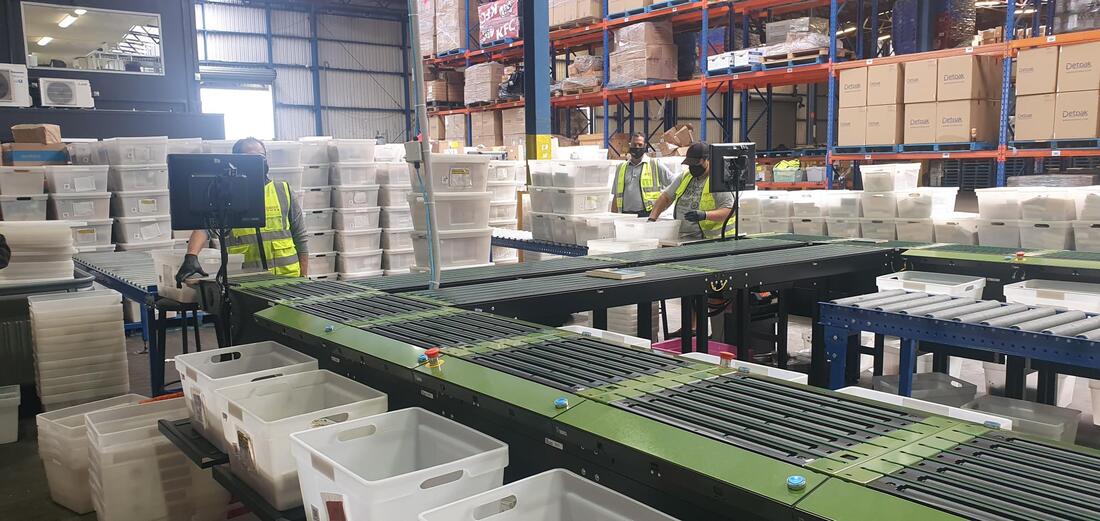
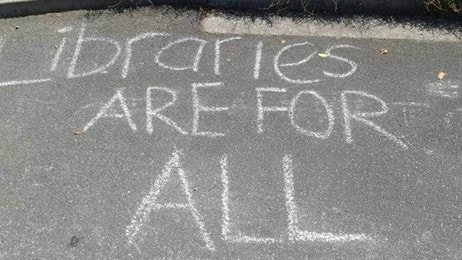
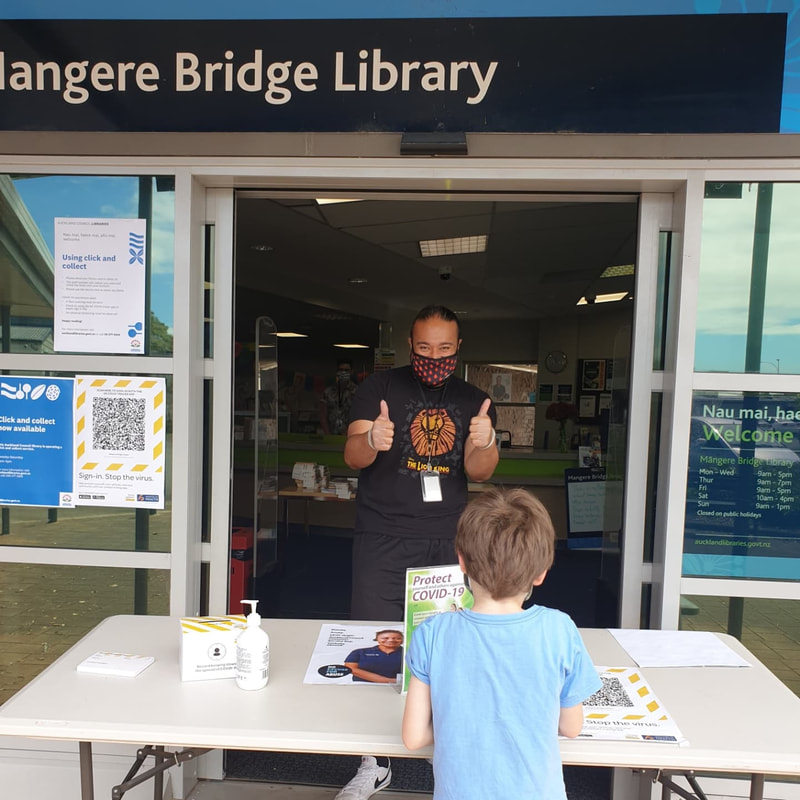
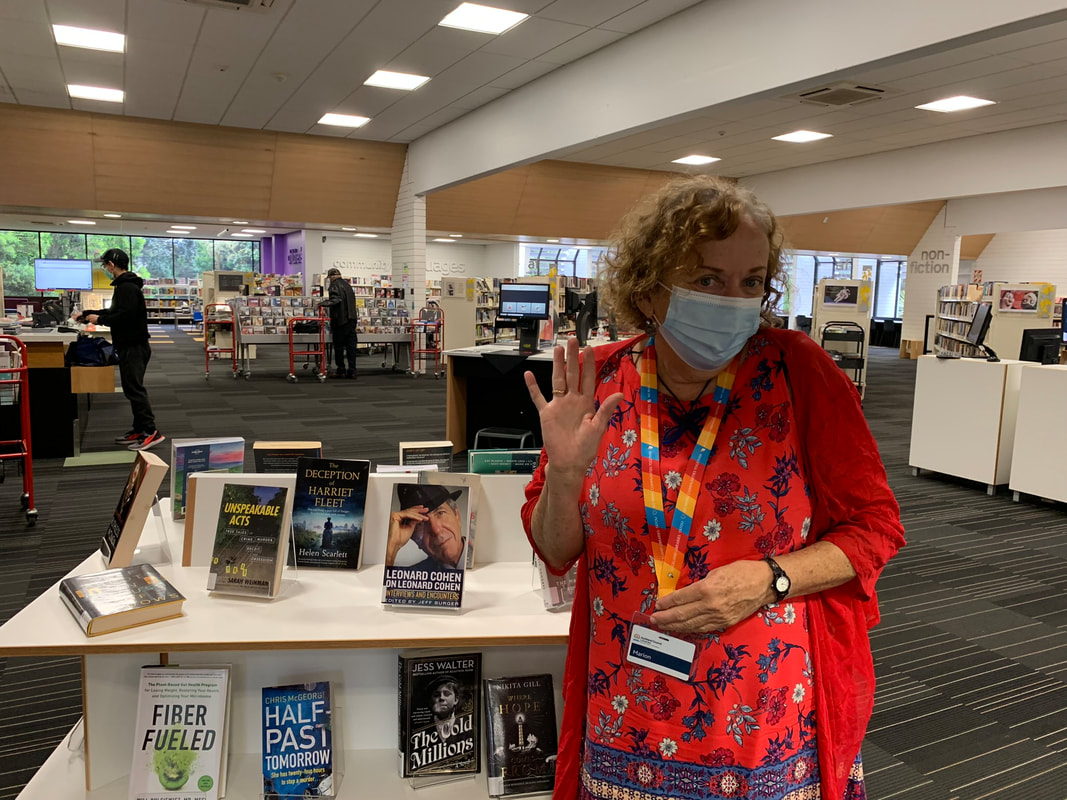
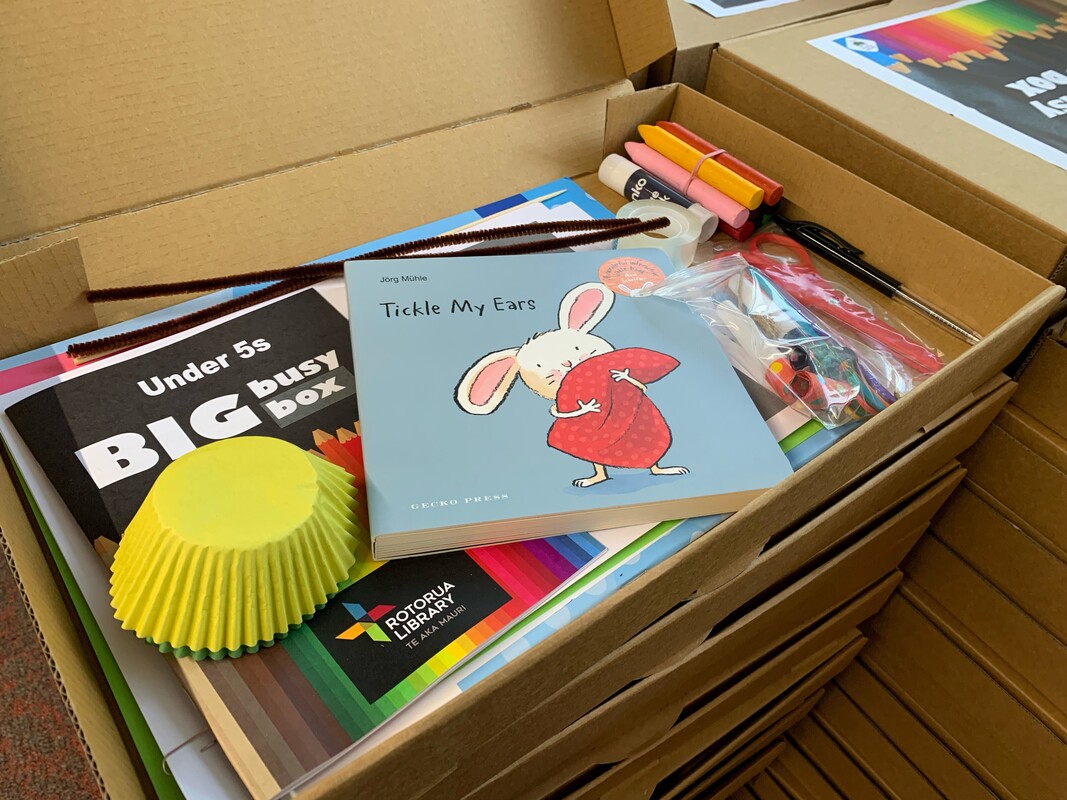
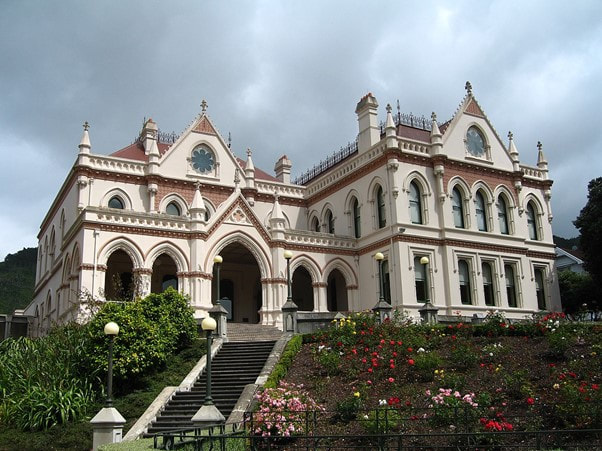
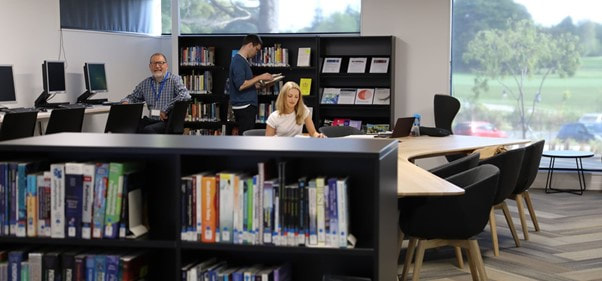


 RSS Feed
RSS Feed